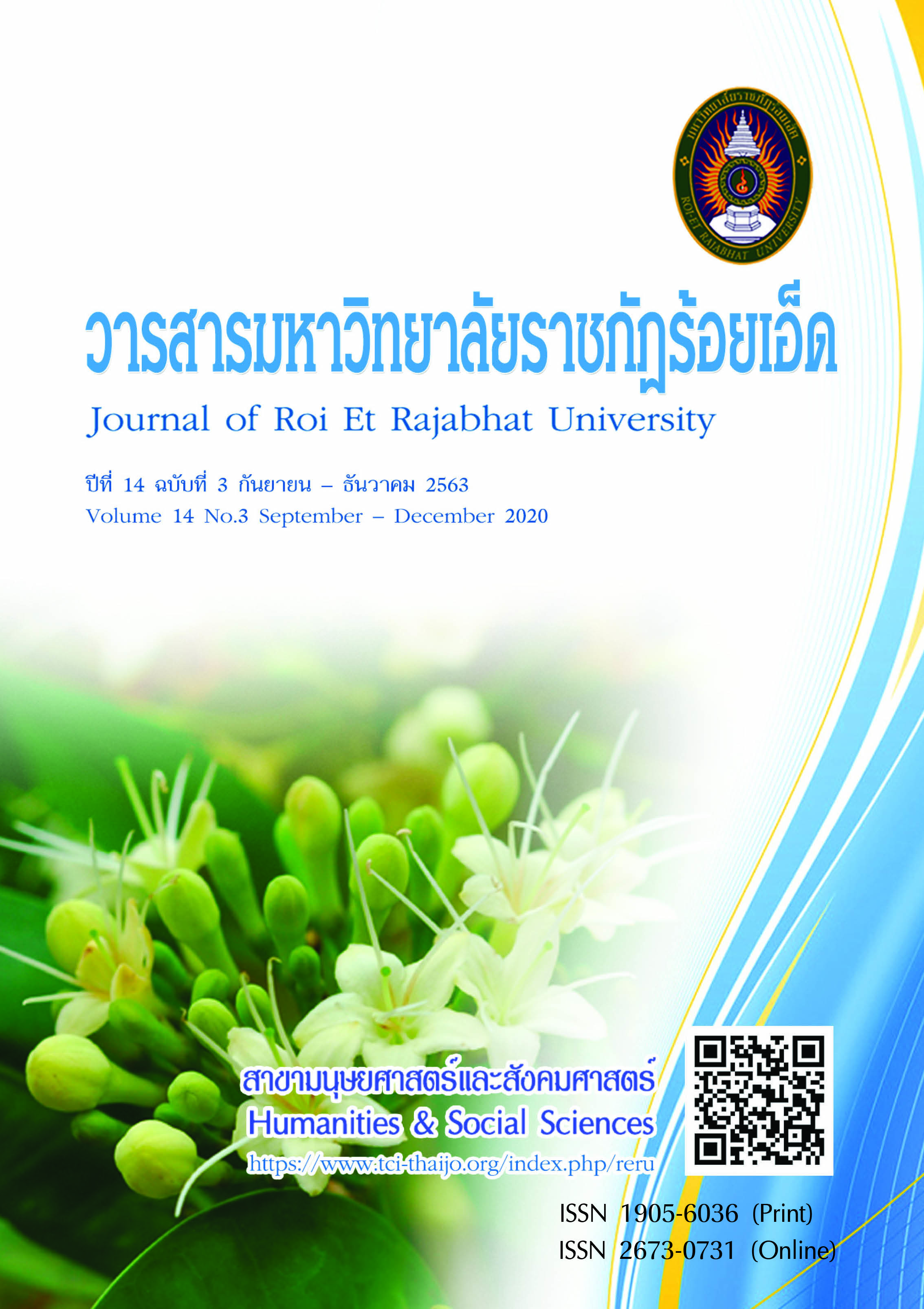Servant Leadership of the Basic Education School Principals : The Study to Create Grounded Theory
Keywords:
Servant leadership, The basic education school principals, Grounded theoryAbstract
The research objectives were to study and present servant leadership of basic education school principals under the jurisdiction of the Office of Basic Education Commission, in the aspects of leadership characteristics, causal conditions, performance and factors affecting leadership, and impacts of leadership. Informants consisted of principals, teachers, students, parents and community leaders. The target area included the educational institutions where the principals possessed explicit servant leadership, obtained by using snowball technique. Data were collected by using document analysis, In-depth interview, participatory observation, small group conversation, and capturing descriptive information. Content analysis technique was applied for data processing by using grouping information systematically, interpreting, aligning information, and classifying information in content groups. Research findings revealed that: 1. Servant leadership characteristics consist of Meaning means "help provide service, have morality, ethics, be a friend, sacrifice, volunteer spirit," and the components consisted of vision, determination, and Intensive development. Public mind and services, and harmonize one's mind, protect appreciating, and media and technology values 2. Causal conditions consisted of individuals: "Being principals of servant leadership". Identity: "Bringing the wisdom of the monarch to develop teams committed to service, co-ordinating with the community, and develop quality people to excellence." 3. The practice of Servant leadership consists of specifying vision, developing strategies, accelerating operations, Cooperation, focusing on network building, and distributing evaluation. 4. Factors affecting servant leadership consisted of positive factors such as characters of the principals, management process of quality teams, and excellent institutions. The negative factors were weak teams, insufficient budget, and unclear policy. 5. Consequences of servant leadership included 1) principal self-esteem, good reputation, professional management, 2) students’ high achievement, having life skills, media literacy, 3) Social awareness institutions had quality according to the standards, and guardian and community accepted and be proud.
References
ธีระ รุญเจริญ. (2550). ความเป็นมืออาชีพในการจัดและบริหารการศึกษาปฏิรูปการศึกษา. กรุงเทพฯ: ข้าวฟ่าง.
นภาภรณ์ หะวานนท์, เพ็ญสิริ จีระเดชากุล และสุรวุฒิ ปัดไธสง. (2550). ทฤษฎีฐานรากในเรื่องความเข้มแข็งของชุมชน.
กรุงเทพฯ: สำนักงานกองทุนสนับสนุนการวิจัย (สกว.).
บัณฑิต แท่นพิทักษ์. (2540). ความสัมพันธ์ระหว่างภาวะผู้นำ อำนาจ ความศรัทรา และความพึงพอใจในงานของครูโรงเรียน
มัธยมศึกษา. ดุษฎีนิพนธ์ การศึกษาดุษฎีบัณฑิต สาขาวิชาบริหารการศึกษา. นครนายก: มหาวิทยาลัย
ศรีนครินทรวิโรฒ.
สมเกียรติ พละจิตต์. (2552). สภาพและปัญหาการดำเนินงานประกันคุณภาพภายในสถานศึกษา สังกัดสำนักงานเขตพื้นที่
การศึกษายโสธ เขต 1. วิทยานิพนธ์ ศึกษาศาสตรมหาบัณฑิต สาขาวิชาการบริหารการศึกษา. สกลนคร:
มหาวิทยาลัยราชภัฏสกลนคร.
สายสุดา กิจประยูร. (2544). การศึกษาการบริหารการจัดการศึกษาและประสิทธิผลของโรงเรียนคาทอลิกในสังกัดสังฆมณฑล
ราชบุรี. วิทยานิพนธ์ การศึกษามหาบัณฑิต สาขาวิชาบริหารการศึกษา. นครนายก: มหาวิทยาลัยศรีนครินทรวิโรฒ.
สุภางค์ จันทวานิช. (2543). วิธีวิจัยคุณภาพ. กรุงเทพฯ: จุฬาลงกรณ์มหาวิทยาลัย.
Adler, M. A. (1994). Gender difference in job autonomy : The consequences of occupational segregation
and authority. Sociological Quartery, 34(3), 449.
Alan B. K. (1982). Leadership Strategies for meeting new challenges. San Francisco: Jossey-Bass.
Daft, R. L. (2005). The Leadership Experience (3rd ed.). Ohio: Thomson.
Fair, R. W. (2001). A Study of New Jersey Public School Superintendents'. Perceptions Regarding The
Behavioral Characteristics of Effective Elementary. School Principals. New Jersey:
Seton Hall University.
Greenleaf, R. K. (1977). Servant leadership. Mahwah, New Jersse: Paulist Press.
Gtaser, B. C., & Strauss, A. L. (1967). The discovery of grounded theory. Chicago: Aldine.
Hoy, W. K. and Miskel C. G. (1991). Educational Administration : Theory Research and Practice (4 th ed.).
New York: Harper Collins.
Hoy, Wayne K. and Miskel, C. G. (2001). Educational Administration: Theory Research and Practice (6th ed.).
New York: Random House.
Hoy, W. K. and Furguson, J. (1985). Theoretical Framework and Exploration Organization
Effectiveness of Schools. Educational Administration Quarterly, 21(2), 145-160.
Yukl, G. (2002). Leadership in Organizations. Prentice Hall: Upper Saddle River.
Downloads
Published
How to Cite
Issue
Section
License
บทความที่ได้รับการตีพิมพ์เป็นลิขสิทธิ์ของวารสารมหาวิทยาลัยราชภัฎร้อยเอ็ด
ข้อความที่ปรากฏในบทความแต่ละเรื่องในวารสารวิชาการเล่มนี้เป็นความคิดเห็นส่วนตัวของผู้เขียนแต่ละท่านไม่เกี่ยวข้องกับมหาวิทยาลัยราชภัฎร้อยเอ็ด และคณาจารย์ท่านอื่นๆในมหาวิทยาลัยฯ แต่อย่างใด ความรับผิดชอบองค์ประกอบทั้งหมดของบทความแต่ละเรื่องเป็นของผู้เขียนแต่ละท่าน หากมีความผิดพลาดใดๆ ผู้เขียนแต่ละท่านจะรับผิดชอบบทความของตนเองแต่ผู้เดียว





